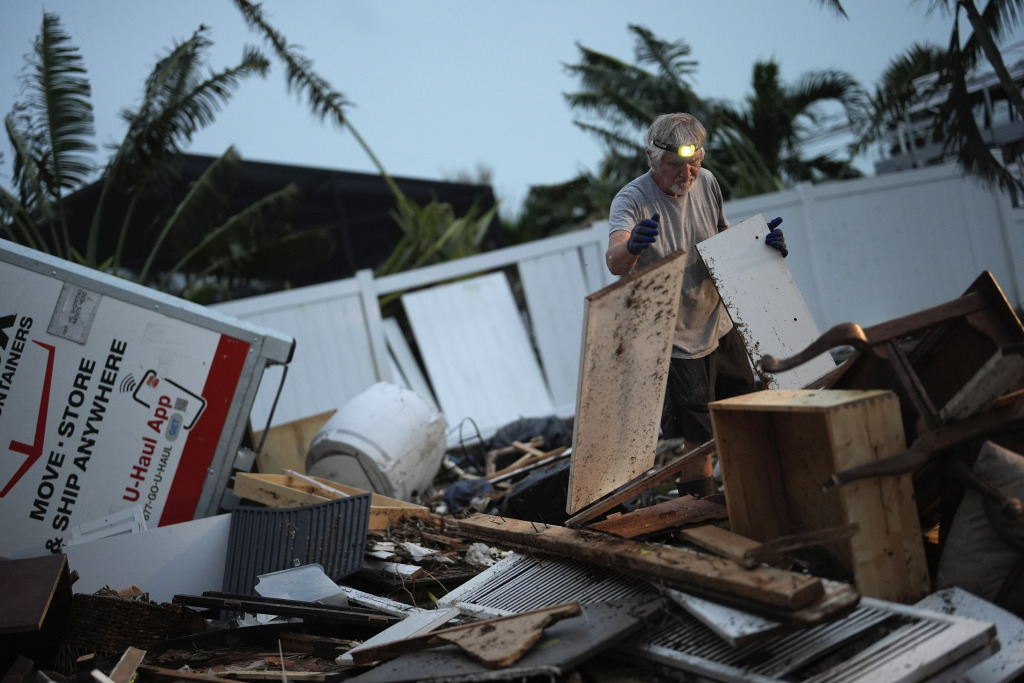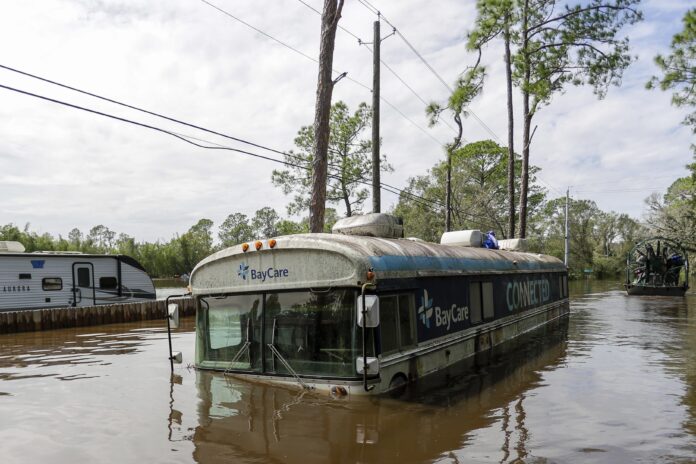As human activities continue to warm the planet, scientists are increasingly warning that severe storms like Hurricane Helene, which struck the Southeastern United States last month, will become more frequent. On Wednesday, a team of experts pointed out that the deadly storm—Helene was the worst to hit the U.S. mainland in nearly two decades—was not an isolated event, but rather a sign of things to come as the world continues to rely on fossil fuels, writes the New York Times.
This assessment came just a day before Hurricane Milton slammed into Florida, leaving millions without power and entire neighborhoods underwater.
The report, produced by World Weather Attribution (WWA), estimates that Helene unleashed 10% more rain and had winds 13 miles per hour stronger than it would have in pre-industrial times. The waters fueling the storm were 2.3 degrees Fahrenheit warmer, illustrating how climate change is intensifying storms.
Julie Arrighi, of the Red Cross Red Crescent Climate Center, emphasized that such storms are no longer once-in-a-lifetime events. “We need to accelerate our preparedness for these unimaginable disasters,” she said.

Though the WWA report has yet to be peer-reviewed, its findings are consistent with other studies on climate change and extreme weather. Scientists predict that as global temperatures rise, the number of intense hurricanes will increase, and storms will grow stronger as they traverse warmer waters.
Link between global warming and extreme weather
Helene intensified rapidly due to the Gulf of Mexico’s unusually warm surface, skyrocketing from a Category 1 to a Category 4 hurricane in under a day. Hurricane Milton, which reached Category 5 status even faster, followed a similar trajectory.
Beyond the wind and rain, climate change is making hurricanes wetter, as warmer air holds more moisture. Helene dumped heavy rainfall in Georgia and the Appalachians, with one scientist likening the storm’s moisture surge to an “atmospheric river” transporting water vapor from the tropics.
These findings demonstrate the link between global warming and extreme weather, though scientists acknowledge that it’s difficult to pinpoint the exact contribution of climate change to any single event. Still, they are growing more confident in their analyses, using advanced climate models to simulate conditions in a world without human-induced warming.
Such studies could play a significant role in climate-related lawsuits, as governments and communities seek compensation for damage caused by storms like Helene and Maria. Scientists believe that attribution research may help shape future policies, including international climate funds for disaster recovery.


